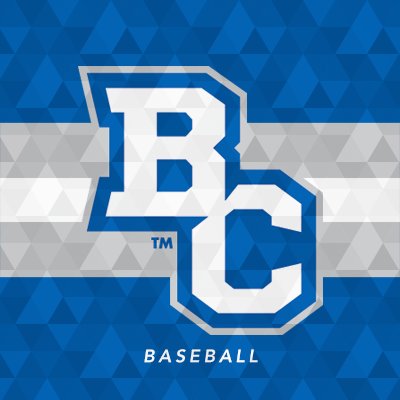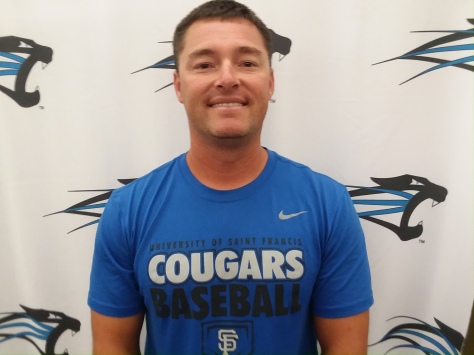
By STEVE KRAH
Seth Zartman has shared slices of life with hundreds of players in two decades as a college baseball coach.
There have been moments shared in dugouts, on bus rides and at team meals and community service projects.
The man who has led the program at Bethel College in Mishawaka, Ind., since the 2004 season has always viewed these young men as more than athletes.
They are people, too.
“I want to love those guys the very best that I can while they’re here,” says Zartman. “When they leave, that love doesn’t change. You’re very appreciative of who they are as people.”
Zartman, a 1998 Bethel graduate, tries to see what makes each one tick and does his best to lead them on and off the diamond.
“Your players are more than just a roster number,” says Zartman. “They’re more important than that.
“It’s the relationship you build with those guys and getting to know them for who they are not only on the field but off. Who are they within their families? What do they like to do?.
“To have a genuine care for who they are as a person allows you to understand how you can deal with them on the field as well and make them the best baseball player you can.”
It’s a lesson he learned while playing at Bethel for head coach Sam Riggleman.
Zartman, who wrapped his career as the Pilots’ all-time leader in home runs (37), runs batted in (181), doubles (61) and slugging percentage (.625) and was inducted into the Bethel College Athletic Hall of Fame in 2006, saw Riggleman’s example of how to “treat and love your players.”
Riggleman displayed an attention to detail and a way of pushing the right button to get the most out of his players.
“When you’re a player for Sam you understand real quickly the importance of details and the small things,” says Zartman, who is going into his 16th season as Bethel head coach in 2018-19. “Coach was very well-organized. You never question whatever plan he had for what we were doing every single day.
“It had to do with your focus and what attitude you were going to show up with everyday. Those are things I’ve tried to carry on in my coaching career.”
Prior to returning to his alma mater, Zartman started the program at Mid-Continent College in Mayfield, Ky. The school (which has since closed) was changing to a liberal arts institution and adding athletics.
Zartman tried to get a graduate assistant coaching position after graduating from Bethel and when he found none, he went into the business world for a year.
Zartman is now in his 20th season as a head coach without ever having been an assistant.
“It’s very unusual,” says Zartman. “Guys ask all the time about how to get going in this realm. I can tell them that my story’s not the one that you look at.
“I was very fortunate to get that opportunity freshly out of school.”
Most head coaches went through the grind, starting out as a graduate assistant and/or volunteer coach before serving multiple seasons as a full-time assistant.
One year removed from being a player, Zartman took a call from Riggleman and found out about Mid-Continent.
“In my interview I found out they had already interviewed 20-plus coaches that had experience at the college level and every single one of them turned down,” says Zartman, recalling the summer of 1999. “Then here comes this young kid one year out of college. But — Praise God! — I got the call and they offered me the job.
“I started the program from Ground Zero.”
In the four seasons that Zartman was there, Mid-Continent built a baseball field from scratch and finally reached double digits in wins in his last season.
“It was a tough road, but a road I wouldn’t trade for anything,” says Zartman. “When you’re thrown into the fire like that, you learn a lot and quickly.
“You’re young and green and you just go with instinct. You and learn the best way you know how.”
Between learning on the job, spending time on the phone with Riggleman and being led by the Mid-Continent administration, Zartman began to navigate life as a college head coach.
Recruiting has changed for Zartman during his time in charge at BC, where the current tuition is about $28,500.
“Just in my 16 years here at Bethel, we’ve had four different scholarship systems,” says Zartman. “We go from a standard to a certain pot of money to a period of time with no (athletic) scholarships to today when we’re in a discount rate system.”
Zartman says the biggest switch in recent years is that players are making their college decisions a lot sooner. Rare are the days that they commit in the summer and then come to campus in the fall.
“It’s helped us build our recruiting lists earlier,” says Zartman. “We’re in the period right now where a lot of Class of ’19 kids are making their decisions.
“They want to have a stress-free senior year.”
While trying to build a roster that the Bethel administration wants to be between 28 and 35 athletes, the Pilots coaching staff (Zartman, Kiel Boynton and Dick Siler) get out to high school games at the end of the college season and then really focus on summer travel tournaments — particularly Pastime Tournaments at the University of Notre Dame and Bullpen Tournaments at Grand Park in Westfield, Ind.
Bethel coaches also see players via video and identify potential recruits through Prep Baseball Report.
“A lot of kids are now promoting themselves,” says Zartman. “With the videos, we can get a quick glimpse to see what they’re like.”
The current roster includes players with hometowns in Indiana, Michigan, Ohio, Illinois, California, Nevada, New Jersey, New York and Venezuela.
“We’re starting to branch out and get guys from a broader spectrum,” says Zartman. “Some of these guys have never seen snow before. They end up adapting and they really enjoy their experience.”
Bethel is a member of the National Association of Intercollegiate Athletics. The NAIA allows its baseball teams to play 55 games during the school year. The Pilots are to play six games that count toward their record this fall with Saturday noon doubleheaders Sept. 22 (vs. Trinity International University), Sept. 29 (at University of Michigan-Dearborn) and Oct. 6 (vs. UM-Dearborn).
“I love the NAIA from the standpoint that we can spend time with our players,” says Zartman, who was a four-time NAIA All-American as a player. “We can do things off the field with them.”
On the baseball side, teams are allowed 24 weeks of activity during the school year, counting backwards from the last regular-season game. For Bethel this year that means six weeks in the fall and the rest in the spring.
Bethel belongs to the Crossroads League (along with Goshen College, Grace College, Huntington University, Indiana Wesleyan University, Marian University, Mt. Vernon Nazarene University, Spring Arbor University and Taylor University). The CL tries to play as many conference games on weekends as possible.
With schedules aligning, Bethel and Grace are slated play their series in Vero Beach, Fla., in March 2019.
A member of the American Baseball Coaches Association, Zartman plans to attend the ABCA Convention Jan. 3-6 in Dallas.
“I definitely love the camaraderie,” says Zartman. “There is so much perspective to gain from other coaches.
“The clinic speakers are next to none. We also get to have our voices heard (in NAIA meetings).”
Zartman is a 1994 graduate of Caston High School in Fulton, Ind., where he played for head coach Dick Farrer (who is now at Pioneer High School in Royal Center, Ind.).
In his freshman season, Zartman, Farrer came to him and his teammates asking about their diamond dreams. For Seth, it was to be a starting catcher and that goal was attained.
“He enabled us to go for it,” says Zartman of Farrer. “He allowed us to get into those positions and really show what we could do.
“I remember Coach Farrer saying as long you’re giving me your best then I have nothing to complain about. He really, really enhanced the positives.”
Zartman began playing summer youth baseball in Fulton and then switched to Rochester, Ind., to be closer to father Marty’s job. Marty coached back then and later helped Seth at Bethel.
Seth played in Rochester through Babe Ruth before entering high school. In the summers, he played for Walton American Legion Post 418. His coaches were Mike Platt and Larry “Bud” Jones, the latter being the head coach at Logansport High School.
“Coach Jones was a very attention-to-detail guy. He was big on the fundamentals of the game.
“I was very fortunate in all my levels to play for coaches that emphasized how important the fundamentals of baseball are and working those all the time are what makes you the player you’re going to be.
“It’s not just showing up everyday because you have the talent to overpower somebody.”
Zartman knows that a lot of people say that’s the old school way of baseball.
“I’m a firm believer that the old school is the new school,” says Zartman. “You have to do those things.
“That repetition in practice — doing things over and over — implants in you those things that become second nature when you go play a game.”
In addition to his coaching duties, Zartman is the head groundskeeper for outdoor athletic facilities at Bethel. He is assisted by head women’s soccer coach Jamie Lindvall and head cross country/assistant track and field coach Ryan Sommers.
Zartman was diagnosed in January 2012 with hypertrophic cardiomyopathy (HCM). It is a thickening of the heart muscle (myocardium). The condition can make it harder for the heart to pump blood. HCM may also affect the heart’s electrical system.
“I had a good check-up in May,” says Zartman. “I go to Boston in October for my yearly check-up with my main HCM doctor.
“I feel very blessed. God’s been really good in protection and provision.”
Marty and Joyce Zartman, who are also Caston High graduates, have four boys. Seth is one year older than Sean, five years older than Luke and 15 years older than Ethan. Between the three, they have six children. Seth coached Ethan Zartman at Bethel.
Seth and Anitra Zartman, who met at Bethel as student-athletes, have been married for 18 years. The couple has four kids — Senica (14), Ty (14), Lyric (7) and Evik (5).


Seth Zartman, a 1998 Bethel College graduate and BC Athletic Hall of Famer, is in his 16th year as head baseball coach at his alma mater. (Steve Krah Photo)


